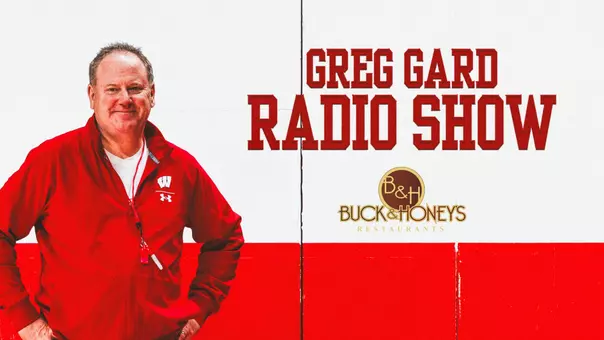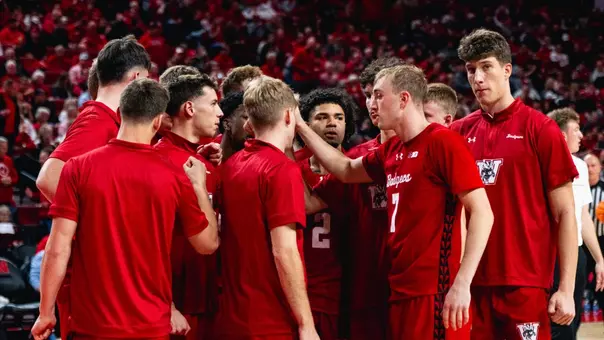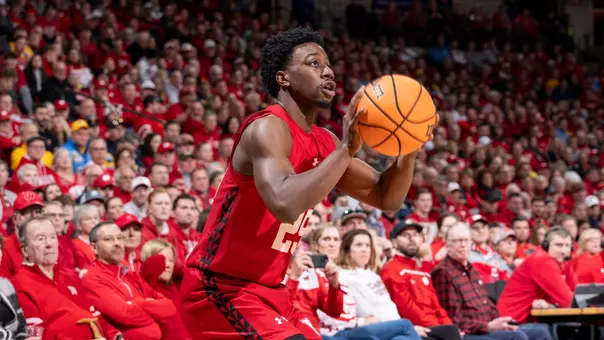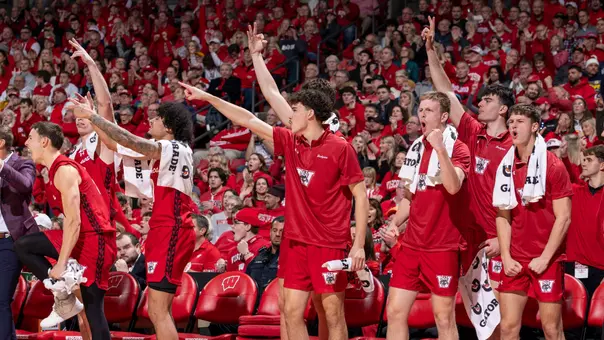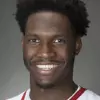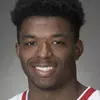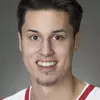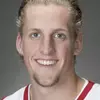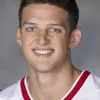Lucas at Large: Reflecting on impact of seniors, future
March 30, 2017 | Men's Basketball, Mike Lucas
Greg Gard shares thoughts on loss to Florida, team culture and why he’s excited for the future
 |
||
|
BY MIKE LUCAS
UWBadgers.com Senior Writer
An hour earlier, Gard walked into a deathly quiet locker room (according to Bronson Koenig, "It almost felt like a death in the family kind of thing"). Gard took the players' pulse. "As I've gone around the locker room after every game," he said, "regardless if they played a little bit, or none, or a lot, I'm making sure they're learning, absorbing, taking everything in that they can."
The objective is always the same, according to Gard, and that's to file away the experience, good or bad, for future application. "We were big picture directed at everybody versus specific," he said. "There were a few things on the (Florida) game. But it was more big picture on the impact of the outgoing seniors and then what lies ahead for the returners."
On Sunday afternoon, he confessed, "I haven't slept much since (Friday). You replay everything back in your mind. You reanalyze not only the last four seconds of overtime, but everything that transpired during the game. Could you have done something different? It sticks with you for a while."
Pregame, @AaronRodgers12 wanted five 3s, two dunks & one "belt." @BadgerMBB's @ZShowbball333 nailed the last part.
— Wisconsin On BTN (@WisconsinOnBTN) March 27, 2017
Gard shared some thoughts on Florida's final possession.
On whether he considered calling a timeout with Nigel Hayes on the free throw line, he said, "I almost took one after he made the second one. But with them having no timeouts that would give them a chance to diagram something to advance the ball farther on the first pass and that's what I didn't want to give them a chance to do."
On whether he considered having Hayes intentionally miss the second free throw, he said, "I felt there was too much time left to try and do that. And if you do, you bring in so many other variables into it. Is there a foul on the rebound? Is there a foul on the drive up the floor? If there is, now you're losing the game on free throws or even a two-point shot."
There was no underestimating Chris Chiozza's speed off the dribble. "I knew going into the game, he was probably the fastest guy we've seen with the ball all year," Gard said. "The thing that we needed to do better was angle the ball, make the ball change directions, which we didn't do at all once he caught it. There needed to be resistance, so that he had to zig-zag up the floor at least once."
Gard is painfully aware that everything that happened or didn't happen in those four seconds is now magnified. But he's also very cognizant of the points that were "left on the table one way or another." That included points off turnovers (Florida had 20) and missed free throws (Wisconsin was 20-of-30). The Gators also had 14 offensive rebounds, the most the Badgers have given up in 13 games.
Zak Showalter made a shot to prolong it. But, in the end, Chiozza made a shot to win it.
"It's a very lonely spot," Gard acknowledged, "when it happens like that."

It didn't take long for Gard's support system to kick in. On Saturday morning, he received reassuring texts from two of his Big Ten fraternity brothers: Michigan State's Tom Izzo and Michigan's John Beilein. Between them, they have nearly 50 years of head coaching experience at the Division I level and have combined for 1,052 wins. Izzo, a Hall of Famer, won the national championship in 2000.
"They've been there, done that," Gard said. "And if you're in this long enough, you're going to be on each side of that coin. They were both more reflective on the whole season. Coming from those two guys specifically, knowing how much experience and time they've put into this profession, it meant a lot to me. They've seen the good and the bad. They've lived this — like we are now."
Later this week, Gard will cross paths with Izzo and Beilein in Phoenix, the site of the Final Four and annual coaches' convention. "I'm going to try to unwind and decompress and reboot," Gard said. "You have to step away from the emotional aspect of what just happened, look big picture and take a step back a little bit. I want to make sure I'm at that point before we go into the player meetings."
When a class like this comes along, you cherish the moments and count the blessings. Once a Badger, ALWAYS a Badger. #OnWisconsin
— Wisconsin Basketball (@BadgerMBB) March 25, 2017
Before going into those individual exit interviews, a staple of every college program, Gard is assuming that everybody who has eligibility remaining will be back. But he's not naïve. "I haven't sat down with anybody yet," he said, "and who knows in this day and age of college basketball. But there are tremendous opportunities for those who are returning."
As was the case last spring, Gard has an open mind to graduate transfers.
"It has to be a fit," he emphasized of the compatibility academically, socially and athletically. "Positionally, what do we need? Do we need a stretch big? I'm also more cognizant than ever to not being light in the backcourt. I've watched how this game has transpired and how we had to play down the stretch. We played small more than anything — just to get more ballhandlers on the floor.
"Look how Villanova played. Look how we played against Florida most of the time. We had Brevin Pritzl at the 4 (power forward) at one point in time just because of how you can matchup. That's how the game has trended. It's a guard's game. And I feel a lot more comfortable going in with trustworthy ballhandling and depth in the backcourt and being able to manage that."
They literally fought to the final second. Absolutely no quit in this group all season long. Proud. #OnWisconsin
— Wisconsin Basketball (@BadgerMBB) March 25, 2017
He'd rather be heavy with guards and/or wings than bigs.
"You don't see two true big guys on the floor anymore or very rarely," he said, adding the need for "more mobile, athletic and versatile players who can stretch defenses" at power forward. "We've played Khalil Iverson some at the 4. Our best lineup was when we had only two of our bigger guys out there; we were better offensively and more versatile and flexible and mobile defensively."
Reflecting on his first full season as head coach, Gard said, "I've learned a lot. The one thing I always knew was important — but probably jumped out more than anything — was the synergy and chemistry and togetherness of a group and how vital that is. Our best teams have always had an exceedingly high level of togetherness with everybody on the same page, one through 17.
"That was something I've watched throughout the year. I had more of an eye on culture, and togetherness and chemistry, probably more so than anything else. And all it did was reaffirm how absolutely vital that is to the success of a team. It reaffirmed everything tenfold how important it is."
Eyeing next season, he said, "There's a lot of potential. I'm excited about the guys coming back. Obviously, there's a lot of room for growth — guys have to get better. But the potential of the group is pretty high. Where they take it and how we grow with it will determine part of it — along with how they improve individually and physically and use the experiences. The foreign trip will be good for us."
The Badgers will take an exhibition tour of Australia and New Zealand in August.
"Every experience this group is going to go through is going to help it," he said. "I don't think there's any doubt with the three guys coming in, our returners and if we add anybody in the spring, yet to be determined, I'm excited. We feel pretty good about what is coming down the road."

